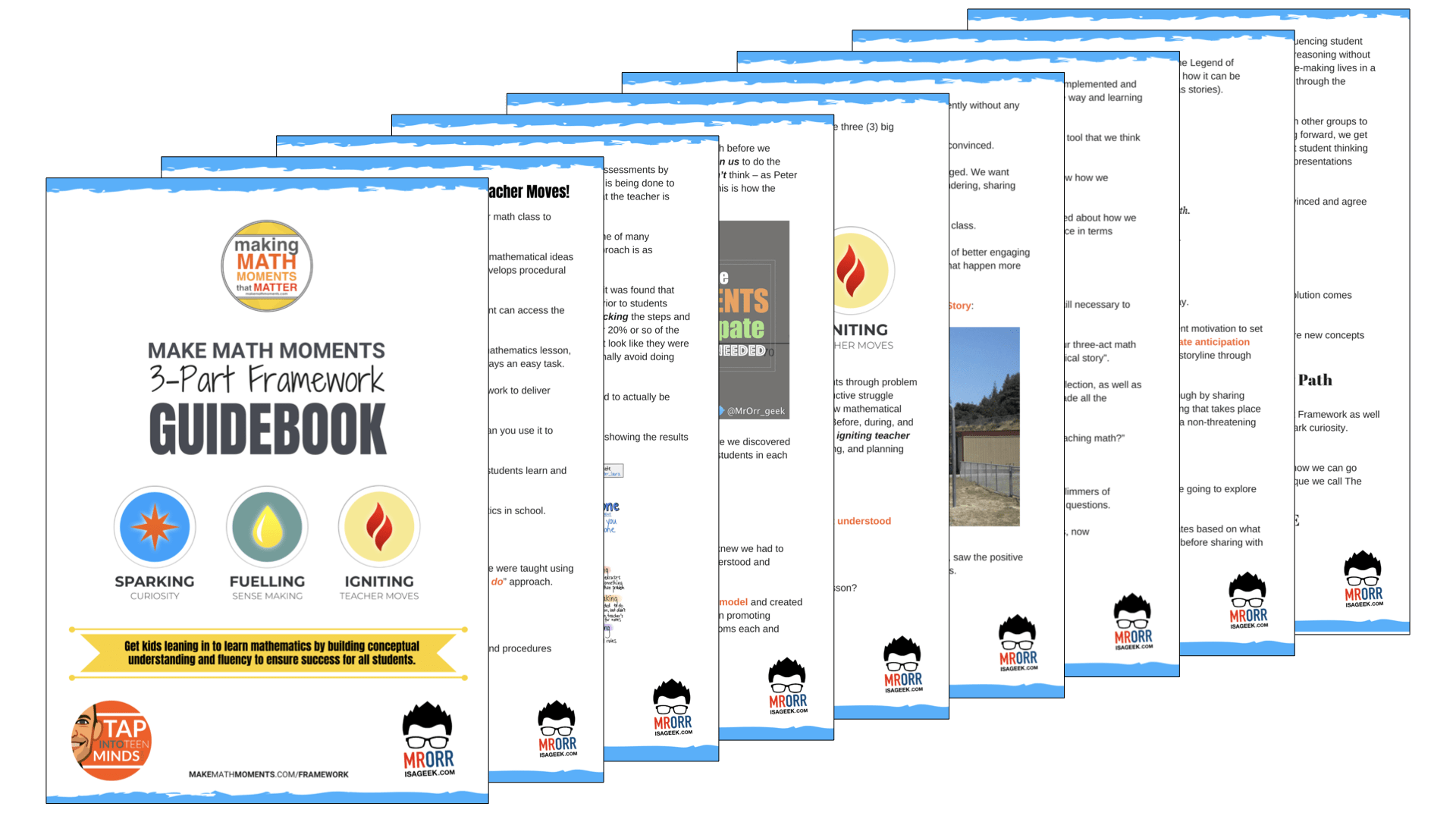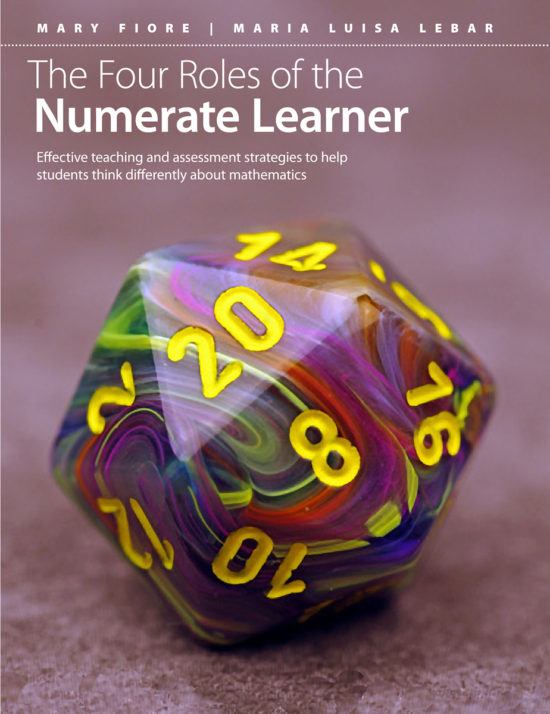Effective teaching and assessment strategies to help students think differently about mathematics
Mary Fiore and Maria Luisa Lebar
If one were to ask whether language literacy and mathematical literacy were alike, I would predict that the beliefs of the majority would be that they are very different. In The Four Roles of the Numerate Learner, authors Mary Fiore and Maria Luisa Lebar use the first lines of the Foreword to share their perspective of what teaching and learning means in any subject area:
“Teaching and learning in the twenty-first century – the now – are multi-faceted activities. We need students to become skilled critical thinkers, thoughtful problem solvers, and reflective communicators. To achieve this vision, educators strive to create a connected classroom culture that is built on trust and mutual respect, and where students are able to ask questions, pose problems, explore ideas, and make informed decisions. Building capacity for connectedness supports an environment that is empowering and engaging, where students are meaningfully involved, where relevance is key, and where their voice matters.”
This book is the result of the authors’ work linking critical literacy to critical numeracy and how the work in literacy by Luke and Freebody can be applied to numeracy.
The book begins with a chapter focused on developing an understanding of the Four Roles of the Numerate Learner including developing a new thinking framework in mathematics, why the framework matters, and the role of thinking in both literacy and mathematics.
Fiore and Lebar then dedicate a chapter to each of the four roles: Sense Maker, Skill User, Thought Communicator, and Critical Interpreter as well as a section in each of these chapters dedicated to explicitly connecting each of these roles to different grade levels in Ontario.
As I progressed through the book, I quickly made connections to much of the learning that we are engaging in at the GECDSB. For example, when reading about the role of Sense Maker, we learn that this involves conceptual and procedural understanding, using rich tasks to develop mathematical thinking and support through sense making, and what this might look like when we connect this work to learning goals and success criteria. A Skill User extends the procedural knowledge of operational skills, basic facts, rules and procedures, and the communication of that knowledge developed in the role of Sense Maker to procedural fluency where we include an understanding of why the procedures work. Other connections to our own district focus includes that of the Pedagogical System. Mathematical Discourse as well as Multiple Tools and Representations are referenced multiple times throughout the book to go along with Meaningful Rich Tasks as mentioned previously.
The Four Roles of the Numerate Learner is laced with many useful nuggets throughout. One such nugget was “The Elephant in the Room”, where the common incomplete debates about the role of basic math facts and the myths about the importance of having content knowledge specialists as math teachers. Both addressed very appropriately and meaningfully.
Overall, The Four Roles of the Numerate Learner is another excellent mathematics professional learning resource to add to your bookshelf as you continue to press for a deeper understanding of mathematics pedagogy.
Connect with Mary Fiore on Twitter.
Connect with Maria Luisa Lebar on Twitter.
WANT TO LEARN HOW TO TEACH THROUGH TASK?

Share With Your Learning Community:

About Kyle Pearce
I’m Kyle Pearce and I am a former high school math teacher. I’m now the K-12 Mathematics Consultant with the Greater Essex County District School Board, where I uncover creative ways to spark curiosity and fuel sense making in mathematics. Read more.
Read More From The Blog

